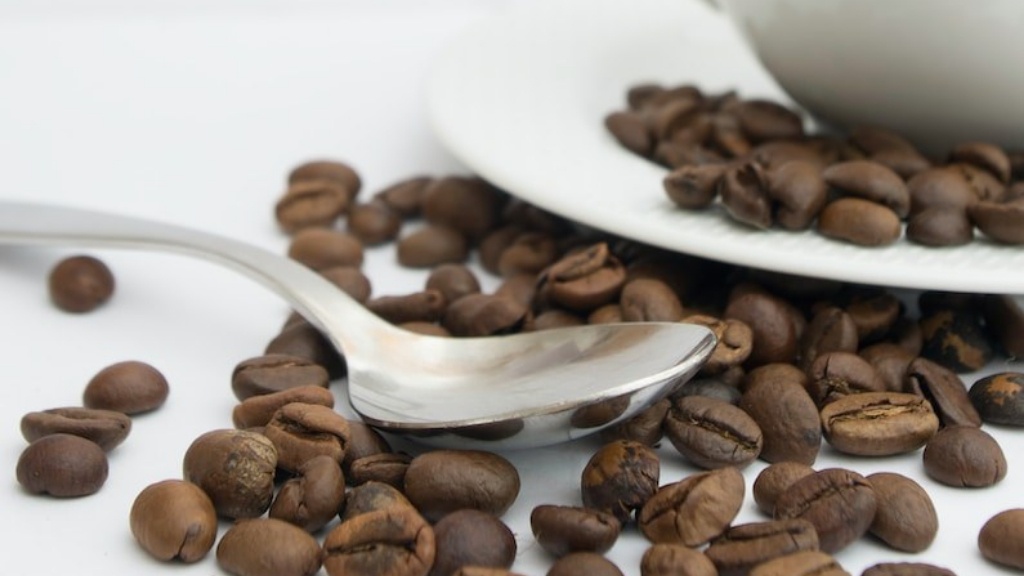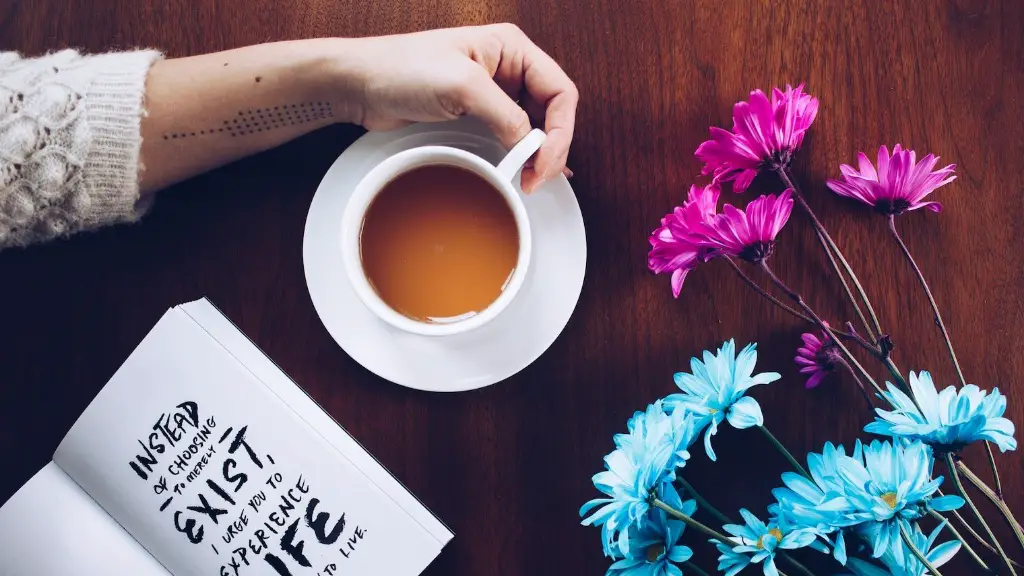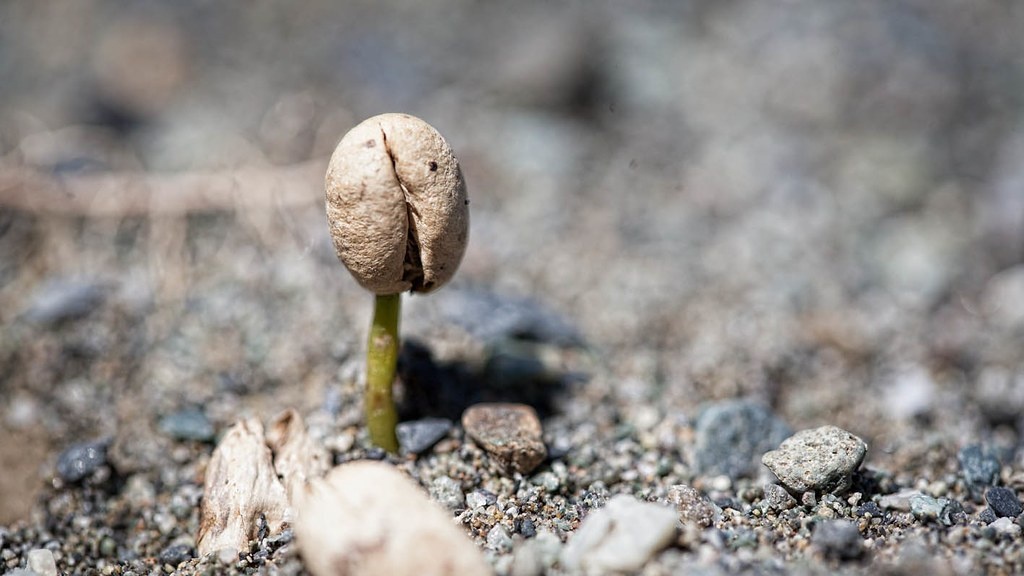Caffeine is the ultra-popular substance found in coffee and has been the go-to choice of beverage for athletes, the working class, and anyone seeking an energy boost for centuries. Still, even with its long history of use, many people are unsure of whether drinking coffee on an empty stomach is safe.
Caffeine does have its benefits — it can reduce fatigue, improve alertness, and potentially help with mild to moderate depression. Even so, there’s some evidence that suggests drinking coffee on an empty stomach can have negative health effects. Since coffee is highly acidic, it can irritate the stomach and cause acid reflux if consumed without food. It also has a laxative effect — meaning it can cause loose stools and diarrhea in some people.
Furthermore, research over the years has shown that caffeine has the potential to interfere with essential nutrients. When caffeine is quickly absorbed due to an empty stomach, the body can’t absorb some essential minerals and vitamins correctly, leading to deficiencies. Since coffee is highly acidic, it can also lead to ulcers and stomach cancer if consumed on an empty stomach for an extended period of time.
A study from 2008 looked at the effects of caffeine on the function of the stomach. It found that drinking coffee on an empty stomach can cause the stomach to secrete more acid, thus worsening symptoms of acid reflux. It also noted that when caffeine was taken with food, the effects were not as strong.
Additionally, a 2013 study focused on the effects of caffeine on the digestive system found that consuming caffeine on an empty stomach can lead to an increased level of acidity, which could potentially cause stomach ulcers. It also concluded that drinking coffee with food can reduce these negative effects.
Nutritionists recommend consuming coffee with an appropriate meal or snack, such as a piece of fruit or a nut butter-based snack. This can help slow down the absorption of caffeine and reduce its negative effects on the digestive system. Additionally, people should limit their consumption of caffeine — experts recommend no more than 400mg per day.
Does drinking coffee affect your sleep?
Yes, drinking coffee can affect your sleep. Caffeine is a stimulant that can take hours to wear off in your body and can make it harder to fall asleep. Therefore, it is best to avoid drinking coffee in the afternoon or evening hours. Instead, try drinking light or decaf coffee or herbal teas.
It is also important to note that the caffeine in coffee can have different effects on different people. Some people may be able to drink coffee late in the day and still get good quality sleep. However, others may find that even drinking coffee in the morning or early afternoon can still interfere with their sleep.
If you’re finding that drinking coffee is interfering with your sleep, try cutting back on the amount of coffee you drink or switching to decaf. Additionally, try drinking tea or water in the afternoon and avoid caffeinated beverages close to bedtime.
What are the side effects of drinking coffee on an empty stomach?
The side effects of drinking coffee on an empty stomach can include acid reflux, irritability and headaches, nausea, increased heart rate and blood pressure, and a decrease in nutrient absorption. Additionally, consuming too much caffeine can lead to dehydration, insomnia, and restlessness.
It is important to note that these side effects are more likely when drinking coffee on an empty stomach, since there is no food to buffer the stomach from the acidity of the coffee. Therefore, if you are drinking coffee, it is best to do so with food.
If you are experiencing any of the side effects mentioned above, it may be a sign that you are consuming too much caffeine or drinking coffee on an empty stomach. In these cases, it may be best to scale back your coffee consumption and drink with food.
What are some healthier alternative sources of caffeine?
If you are looking for alternative sources of caffeine that are not as acidic or intense as coffee, there are several options available. Some of these include unsweetened black or green tea, herbal tea, cocoa, and yerba maté.
Black and green tea both contain lower levels of caffeine than coffee. Green tea also contains healthful antioxidants that can improve your mental and physical health. Additionally, cocoa and yerba maté have slightly lower levels of caffeine than coffee but still provide a “boost” to your energy levels. It is important to note that all of these sources of caffeine should still be consumed with food to reduce the potential side effects of caffeine.
Finally, another option is to opt for non-caffeinated sources of energy. These include matcha, vegetable juices, smoothies, and energy bars. These can provide more sustained energy throughout the day without the potential side effects of caffeine.
What are the health benefits of coffee?
Despite the potential side effects of coffee, there are some health benefits associated with coffee consumption. Studies have shown that coffee can reduce the risk of several different types of cancer, lower the risk of stroke and heart disease, and reduce inflammation. It can also improve concentration and focus, increase alertness and energy levels, and reduce the risk of developing diabetes. Additionally, coffee has been found to have beneficial effects on the gut microbiome.
Even though coffee does have some health benefits, it is important to note that these benefits can be negated if coffee is consumed on an empty stomach or in excess. To get the most out of your coffee, it is best to drink it with food to reduce the potential side effects and consume it in moderation to maximize the health benefits.
What are some tips for the safest way to consume coffee
There are several ways to make sure you are consuming coffee in the safest way possible. First and foremost, it is important to drink coffee with food in order to reduce the potential adverse effects on your digestive system. Additionally, it is important to limit your consumption to no more than 400mg of caffeine per day, as this is the amount deemed safe for the average adult.
You should also choose organic, sustainable coffee whenever possible, as many conventional types of coffee can be laden with chemicals, pesticides, and toxins. Additionally, it is important to watch for signs that you are consuming too much caffeine, such as headaches and irritability. If you notice these signs, consider reducing your coffee intake or switch to decaf.
Finally, it is important to note that coffee can be beneficial to your health but is also a stimulant and can interfere with sleep. Therefore, it is best to consume it in the morning or early afternoon and avoid caffeine close to bedtime.
Is there a better alternative to drinking coffee?
If you are looking for an alternative to coffee, there are several options available. Matcha, green tea, and herbal tea are all excellent alternatives that provide a boost of energy without the intense caffeine content of coffee. Additionally, smoothies and vegetable juices are also good sources of sustained energy.
Another option is to opt for supplements that contain natural sources of caffeine, such as guarana, yerba mate, or matcha. These supplements can provide energy without the side effects that come from coffee. Additionally, there are also many coffee substitutes available, such as chicory coffee or dandelion root coffee, that provide some of the flavor and texture of coffee without the caffeine or acidity.
Ultimately, the best alternative to coffee depends on your individual preferences. It is important to consider your body’s individual needs when making a decision about what kind of beverage or supplement to consume.





